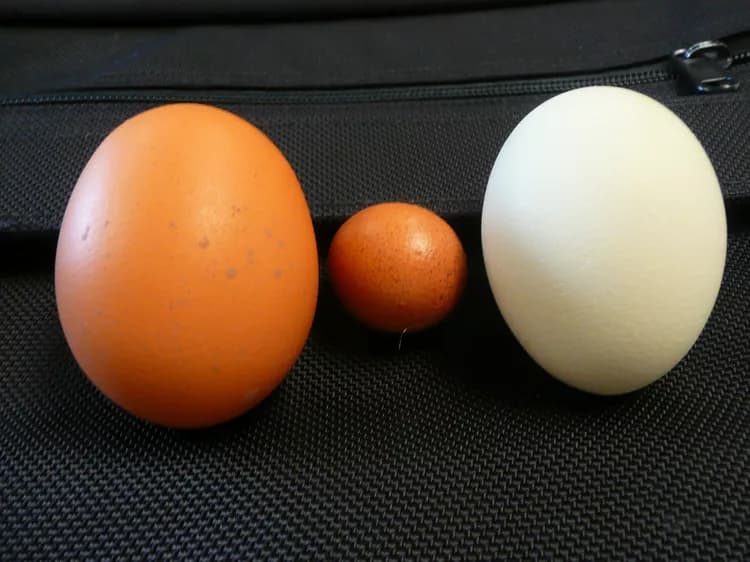
Are There Any Differences Between Organic Eggs And Conventional Eggs?
Organic production may still represent only a small fraction of agricultural sales, but it has been booming over the last two decades. Often, we believe that organic means healthier compared to conventional foods, but organic may not always mean the food is more nutritious. Scientists have been debating for many years whether organic eggs are healthier than conventional eggs.
Organic food certification is a self-regulated term depending on the national government that regulates it. In the United States, the United States Department of Agriculture verifies what is organic or not. Organic foods must not have any artificial food additives or genetically modified ingredients. In addition, organic foods must refrain from artificial methods, material, and conditions like chemical ripening and food irradiation. Organic farmers can use pesticides as long as they are not synthetic. However, if pests and weeds are too difficult to manage through organic pesticides or herbicides, synthetic substances that are approved on the National List of synthetic substances can be used.
Hens that lay organic eggs may live in a caging system but are usually cage-free. They eat organic feed and do not receive hormones, vaccines, or antibiotics. The land the hens live on must produce the feed and must be free from the use of toxic chemical pesticides and fertilizers for at least three years.
When it comes to macronutrients, there is little difference between organic eggs and conventional eggs. Organic eggs may contain similar amounts of protein, carbohydrates, and fats as conventional eggs do. There is no evidence to show that organic eggs have less cholesterol than conventional eggs. An Italian study revealed that the chances of all eggs (both organic and conventional) being contaminated with Salmonella were minuscule but still possible.
Recent research discovers organic eggs to have more micronutrients than conventional eggs. Findings from Penn State University suggest that organic chicken eggs have three times more omega-3 fatty acids than their caged counterparts. The eggs also contained 40% more vitamin A and twice as much vitamin E.
Many people are concerned with antibiotics in their foods. Organic eggs are free from any antibiotic residues. In a 2000 study, published in the Journal of Agriculture and Food Chemistry, researchers found that antibiotics used in chicken feed could remain in a chicken's eggs for up to seven days.
Arsenic is a poisonous heavy metal if it is present in high concentrations in the body. A test by the Utah Department of Health identified arsenic-tainted eggs in chickens fed conventional feed. Arsenic contamination comes from an additive called roxarsone, which approved by the Food and Drug Administration (FDA) and is used to promote chicken growth. Organic eggs do not have any of these chemicals or heavy metals.
If you are looking to get your daily protein, then choosing any kind of egg will work. However, organic eggs typically have better micronutrients such as omega-3 fatty acids and have fewer chances of heavy metals, genetically modified ingredients, and antibiotics.
Additional Resource:
Agricultural Marketing Service - Home. (n.d.). Retrieved March 19, 2015, from http://www.ams.usda.gov/AMSv1.0/NOPOrganicStandards
Blair, R. (2011). Nutrition and feeding of organic cattle. CABI.
Chapman, B. (2008). Raw eggs in mayonnaise blamed as Salmonella infects 18 on Guernsey Island in the English Channel. International Food safety Network http://www. foodsafety. ksu. edu/articles/1208/iFSN-infosheet-6-26-08. pdf.
Donoghue, D. J. (2003). Antibiotic residues in poultry tissues and eggs: human health concerns?. Poultry Science, 82(4), 618-621.
ECFR — Code of Federal Regulations. (n.d.). Retrieved January 24, 2015, from http://www.ecfr.gov/cgi-bin/text-idx?c=ecfr&SID=622a69a51febf44818ad4c8d3535378f&rgn=div8&view=text&node=7:3.1.1.9.32.3.354.7&idno=7
Kan, C. A., & Petz, M. (2000). Residues of veterinary drugs in eggs and their distribution between yolk and white. Journal of agricultural and food chemistry,48(12), 6397-6403.
Matabudul, D. K., Conway, B., Lumley, I., & Sumar, S. (2001). The simultaneous determination of the ionophore antibiotics in animal tissues and eggs by tandem electrospray LC–MS–MS. Food Chemistry, 75(3), 345-354.
Poupoulis, C., Salepi, M., Skapetas, B., & Touska, M. (2009). Fatty acid composition of hens' egg yolk from conventional, organic, Ω-3 and free range farming types. Epitheōrēsē Zōotehnikēs Epistēmēs, (40), 73-84.
Samman, S., Kung, F. P., Carter, L. M., Foster, M. J., Ahmad, Z. I., Phuyal, J. L., & Petocz, P. (2009). Fatty acid composition of certified organic, conventional and omega-3 eggs. Food chemistry, 116(4), 911-914.
HUMAN EXPOSURE TO ROXARSONE FROM HOME RAISED HEN EGGS. (2010, May 21). Retrieved January 24, 2015, from http://www.astho.org/Programs/Environmental-Health/Food-Safety/UDOH-Letter-Health-Consultation--Human-Exposure-to-Roxarsone-from-Home-Raised-Hen-Eggs/
U.S. Department of Agriculture. (n.d.). Retrieved March 19, 2015, from http://www.usda.gov/wps/portal/usda/usdahome?contentidonly=true&contentid=organic-agriculture.html
Related Articles
Test Your Knowledge
Asked by users
Related Centers
Related Specialties
Related Physicians
Related Procedures
Related Resources
Join DoveHubs
and connect with fellow professionals

0 Comments
Please log in to post a comment.